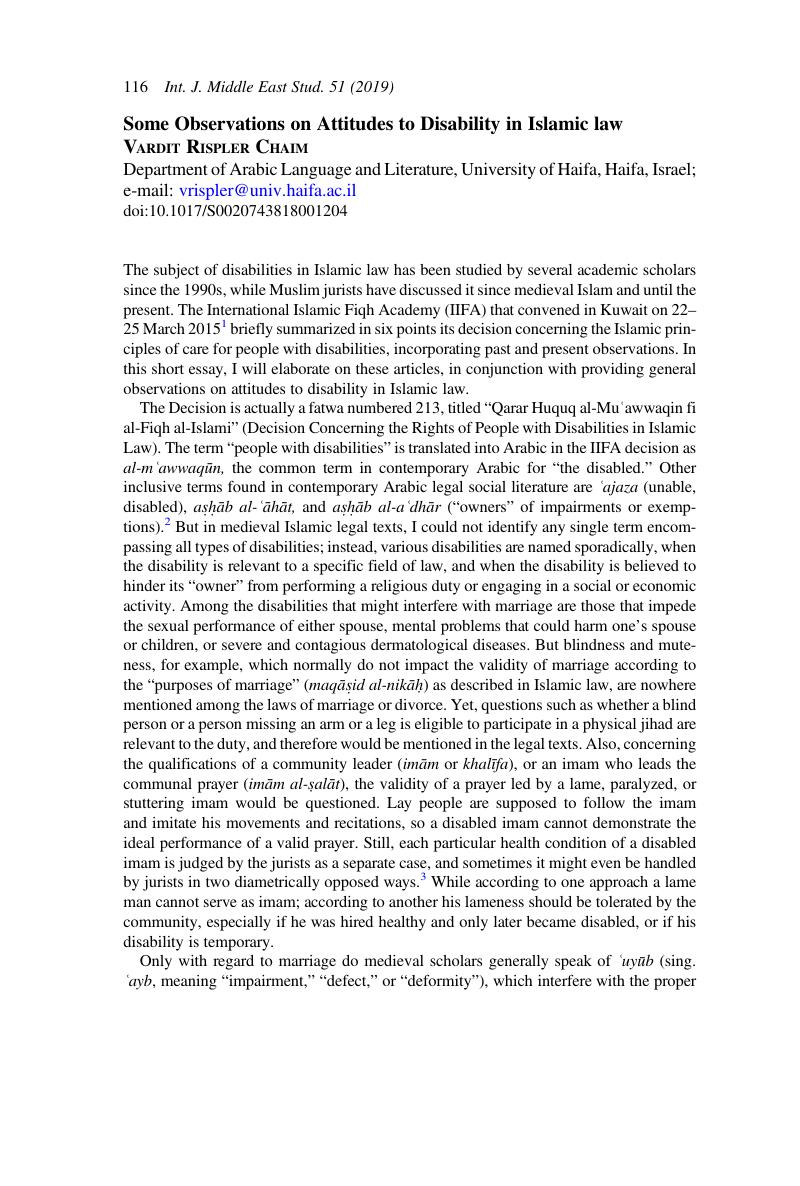No CrossRef data available.
Published online by Cambridge University Press: 15 January 2019

1 Majmaʿ al-Fiqh al-Islami al-Dawli, “Qarar bi-Shaʾn Huquq al-Muʿawwaqin fi al-Fiqh al-Islami,” 22 March 2015, accessed 21 May 2018, http://www.iifa-aifi.org/3998.html.
2 Ghaly, Mohammed, Islam and Disability: Perspectives in Theory and Jurisprudence (London: Routledge, 2010), 9–14Google Scholar.
3 For example, a lame imam can lead the prayer, especially when he is the regular imam of the congregation, but if he is a temporary imam it is preferred that he is healthy. See al-Lajna al-Daʾima li-l-Buhuth al-ʿIlmiyya wa-l-Iftaʾ, al-Luʾluʾ al-Thamın min Fat awa al-Muʿawwaqin (Saudi Arabia: Dar al-Sumayʿi li-l-Nashr wa-l-Tawziʿ. 1998), 2:43–45Google Scholar.
4 Rispler-Chaim, Vardit, Disability in Islamic Law (Dordrecht, the Netherlands: Springer 2007), 93–95Google Scholar.
5 Padela, Aasim I., “Social Responsibility and the State's Duty to Provide Healthcare: An Islamic Ethico-Legal Perspective,” Developing World Bioethics 17 (2017): 205–14CrossRefGoogle ScholarPubMed.
6 Chaim, Vardit Rispler, “Recent Interpretations of the Laws of Zakāt with Regard to People with Disabilities: A Comparison with Classical Fiqh,” Comparative Islamic Studies 9 (2013): 91–112CrossRefGoogle Scholar.